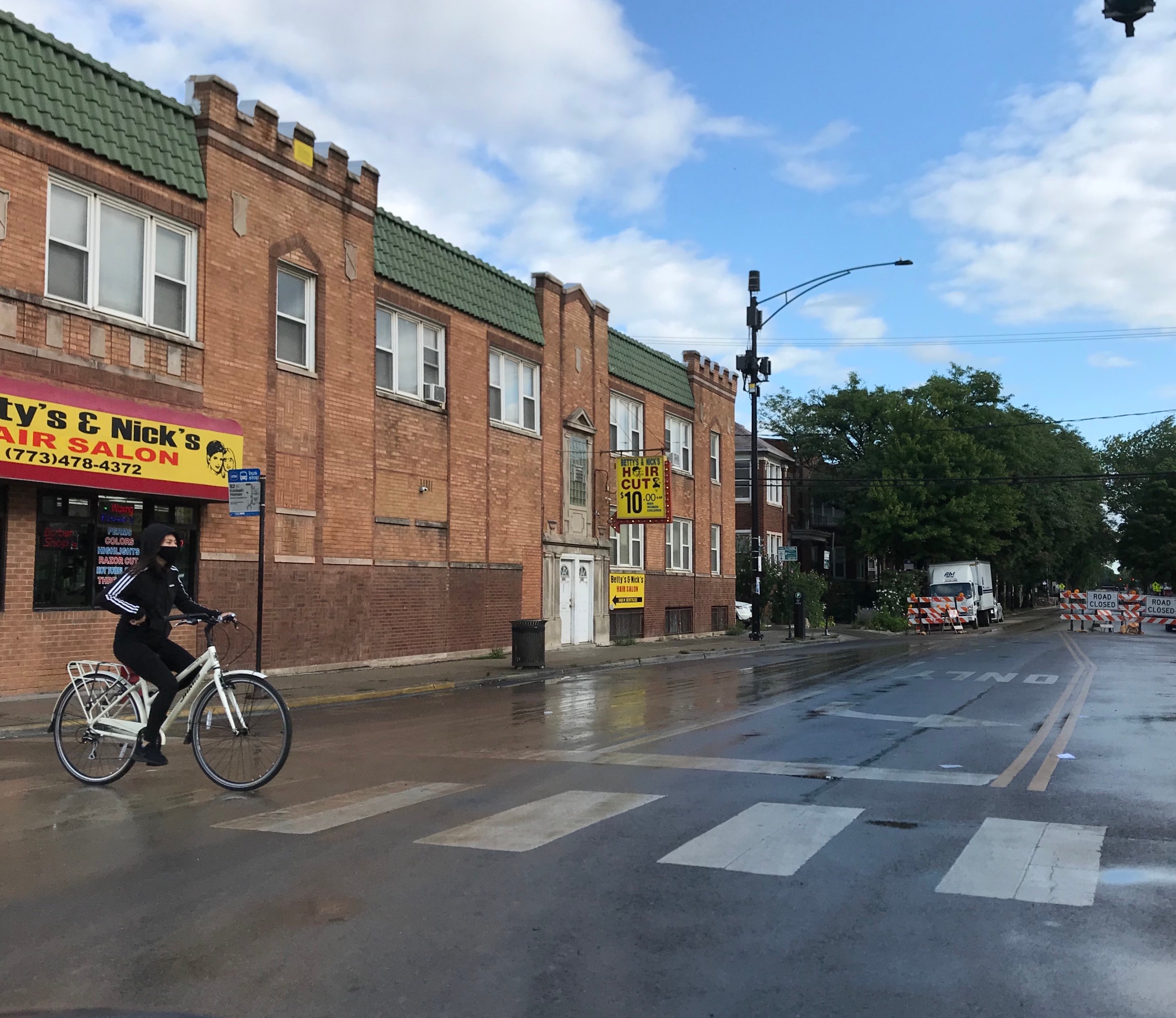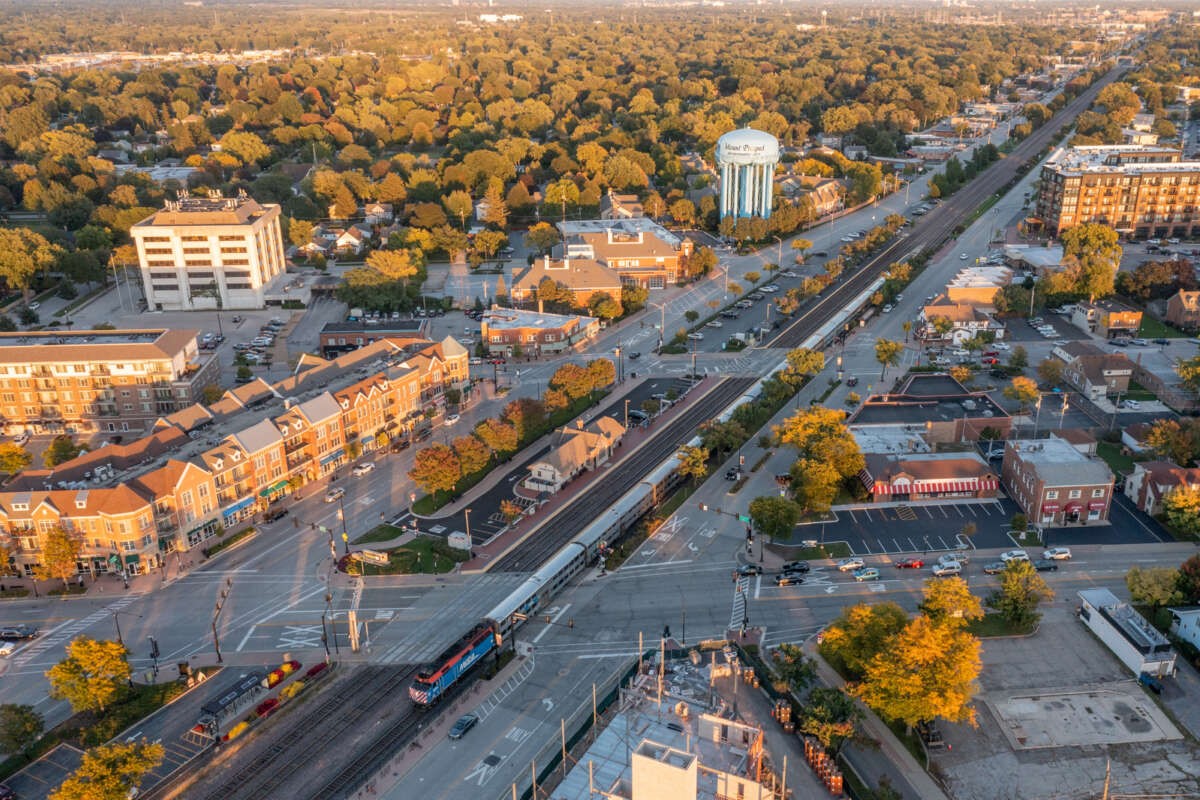This is a Chicago budget season like no other. Our city is facing an estimated $1.2 billion budget shortfall, which Mayor Lori Lightfoot blames on decreased tax revenue due to COVID-19 shutdowns and two rounds of looting. Homicides have been on the rise, and Lightfoot has resisted calls to reduce funds for policing -- currently about 40 percent of the general operating budget -- despite arguments that relocating some of this money to social services like affordable housing, mental health services, and job training would be a more effective crime-fighting strategy.
Meanwhile, the local transit agencies are facing the possibility of massive funding challenges since ridership, fare box income, and sales tax revenue for transit have plummeted during the coronavirus crisis. But essential workers, many of them residents of Black and Latino communities on the South and West sides that have been hardest hit by the pandemic, are heavily reliant on public transportation, so it's crucial that we keep the systems operating safely and efficiently.
In this austere financing environment, is it possible that we could wind up with a 2021 budget that actually improves transportation equity, rather than making matters worse? The Active Transportation Alliance is hopeful that will happen, and last week they published their top priorities for transit, walking, and biking for the upcoming budget, along with strategies to lobby local decision-makers to do the right thing when it comes to mobility justice
"As with many other critical public systems, the COVID-19 pandemic exacerbated the underlying inequities in Chicago’s transportation network," wrote ATA spokesperson Kyle Whitehead. "Decades of structural racism and disinvestment have meant that the Black and Latinx communities were already struggling with inadequate transportation options before the pandemic. Then, as COVID-19 hit, these Chicago communities faced even fewer transportation options."
The advocacy group recently completed a community listening tour talking with more than 100 leaders of community organizations and elected officials from around the region, with a focus on underserved communities, to learn about the biggest transportation challenges facing local residents. ATA also did data analysis looking at demographic, travel, and public health data from the areas with the highest numbers of COVID infections and fatalities. This research informed the group's 2021 transportation budget priorities, below.
- Bus Lanes: "Fund and build 20 miles of dedicated bus lanes on high-ridership corridors by the end of 2021, in addition to 10 new miles before the end of 2020 as part of the city’s COVID-19 response." While Lightfoot made a campaign promise to create 50 miles of bus lanes in Chicago, which lags far behind peer cities like New York, Los Angeles, and San Francisco on that front, only a handful of blocks of new rush hour-only bus lanes have been created during her first 16 months in office. And while Chicago Department of Transportation commissioner Gia Biagi said back in early June that the city was considering adding more bus lanes during COVID to reduce trip times and the potential for viral exposure, there has been no visible movement on that idea.
- Mask on Transit: "Provide masks for all transit riders through distribution at stations/stops and on transit vehicles." Installing free mask dispensers at CTA stations and high-traffic bus stops, and inside trains and buses is an idea that could easily pay for itself in terms of reduced healthcare costs. One thing's for sure: We shouldn't follow New York's lead in threatening to fine transit riders who don't wear masks, which would likely impact marginalized communities the most, and would increase the chances of police violence on transit.
- Safe Streets Fund: "Create a dedicated $20 million annual fund for new walking and biking infrastructure on Vision Zero high-crash corridors." This was another of Lightfoot's campaign promises, which gave her an edge over her competitor Cook County president Toni Preckwinkle, who declined to make that budget commitment. However, there was little or no discussion of this idea when the 2020 budget was finalized last year, and unless transportation advocates make noise about the issue this year, it's very unlikely it will happen in 2021. Since most of the high-crash corridors are on the South and West side, this earmark would promote racial equity and traffic safety, without additional policing.
- CDOT Staffing: "Fund several new full-time positions at CDOT. This would include more bike, pedestrian, and transit planners and at least two new traffic engineers." Chicago is way behind other cities like Portland, Oregon, when it comes to having dedicated staff for designing complete streets improvements. However, at a time when the city of Chicago is looking to cut payroll to save money, this seems to be a long shot.
While trying to convince the mayor and aldermen to finance these initiatives may seem like an uphill battle, it's important to remember that sustainable transportation investments generally provides excellent bang for the buck in terms of economic benefits. It's certainly a better strategy for promoting peace and prosperity than our city than saturation policing. For example, the $20 million annual Safe Streets fund would represent merely 1/90 of the roughly $1.8 billion Chicago is spending on policing in 2020.
Hopefully Congress will allocate billions in federal stimulus funds to support Chicago's transportation system. But we also need to push Chicago leaders to allocate fair funding for transit, walking, and biking. While the deadline to complete the 2021 budget survey was yesterday, there's still time to contact your alderman to let them know you support ATA's transportation funding priorities.
Learn more about the budget process on the city’s budget page. It's likely any future budget town halls will be shared there. Lightfoot’s budget address is scheduled for October 14, and the budget is typically voted on at the November City Council meeting before Thanksgiving.



